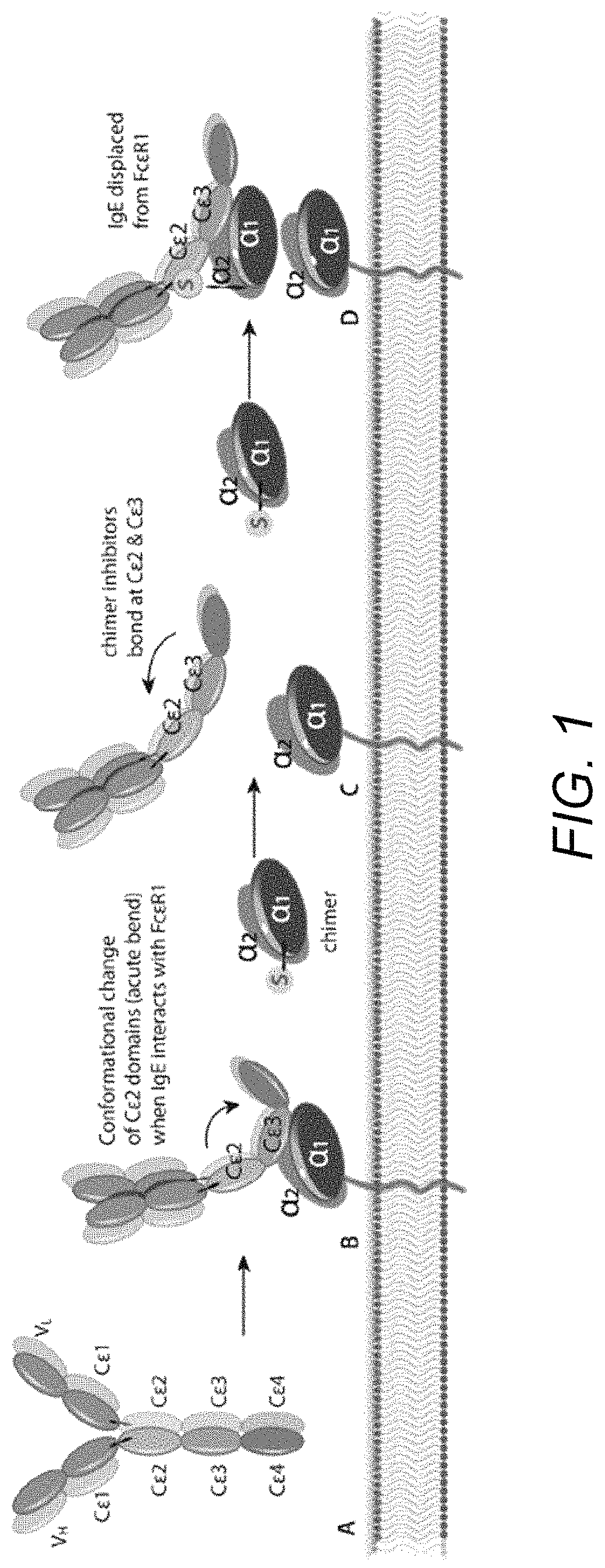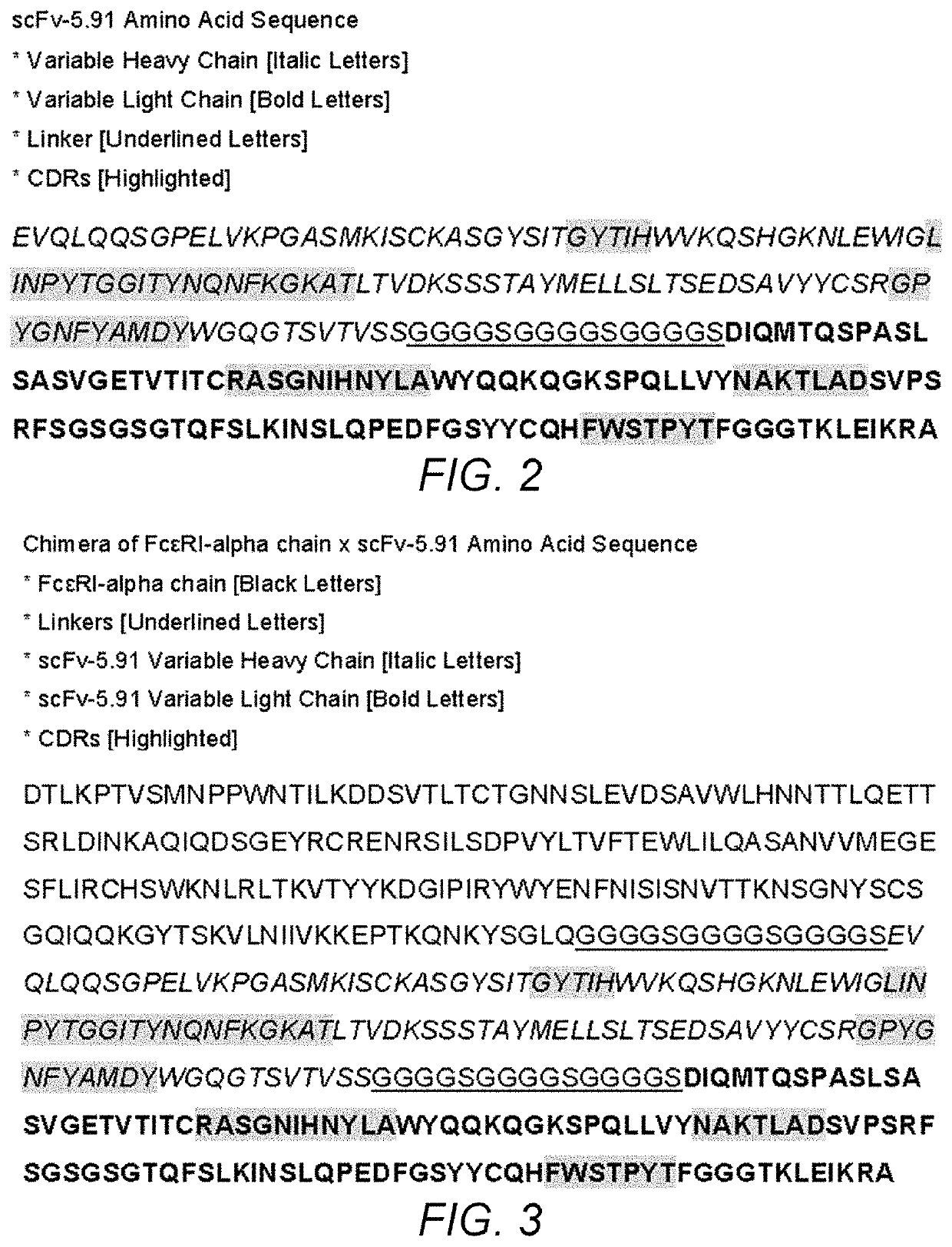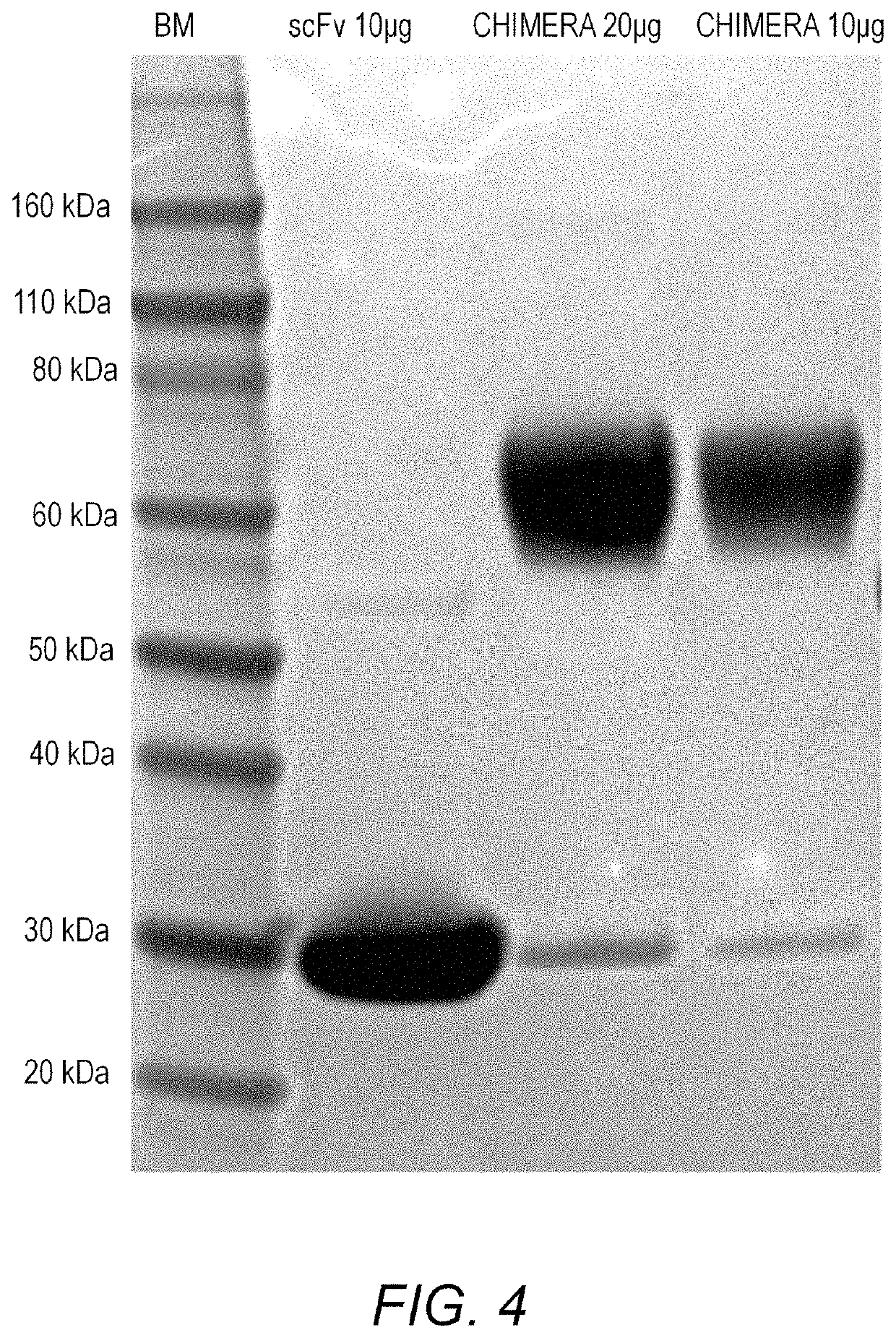Treatment of allergic diseases with chimeric protein
a technology of chimeric protein and allergic diseases, applied in the field of chimeric protein, can solve the problems of allergy sufferers, severe side effects, less than optimal outcomes, etc., and achieve the effect of reducing free serum ige levels
- Summary
- Abstract
- Description
- Claims
- Application Information
AI Technical Summary
Benefits of technology
Problems solved by technology
Method used
Image
Examples
example 1
Disease Therapy in Dogs, Horses and Cats Using a Chimera of Antibody Specific for Dog IgE and the IgE High Affinity Receptor Alpha Chain
[0188]The monoclonal antibody (mAb) 5.91 possesses very high affinity for an epitope on canine, equine and feline IgE that is distant from the IgE site bound by the IgE high affinity receptor alpha chain. A single chain variable fragment (scFv) produced using the sequence of the variable region of mAb 5.91 has been demonstrated to bind IgE when injected into dogs, and to reduce circulating IgE as well as IgE-bearing B cells (memory and plasma cells). In order to increase the affinity of a therapeutic anti-IgE peptide and to increase blocking of IgE binding to mast cells and basophils, a chimera of the anti-IgE scFv linked to the recombinant canine IgE high affinity receptor alpha chain (e.g., the recombinant extracellular segment of the canine IgE high affinity receptor alpha chain) has been produced that shows marked increase in binding affinity to...
example 2
ic Anti-IgE Monoclonal Antibody Single Chain Variable Fragment (scFv) Safety and Immunomodulatory Effects after One Time Injection in Dogs
[0200]Study dogs. The protocol of this study was approved by the North Carolina State University (NCSU), Institutional Animal Care and Use Committee. Mature, mixed breed dogs were randomly sourced by the Laboratory Animal Resources at North Carolina State University from animal shelters as healthy dogs and maintained with standard vaccination for distemper and rabies, and deworming in indoor runs for at least 6 months before this study. Dogs A and B were neutered females and dogs C and D were intact males. Three dogs were available for 4 months and a fourth dog for 1 month to determine the response to a single subcutaneous injection of pegylated scFv anti-IgE.
[0201]Generation of scFv anti-IgE. The heavy and light chain variable regions of a mouse monoclonal antibody (mAb 5.91) with high affinity binding to an epitope in the C2 domain of the epsilo...
example 4
Anti-IgE Therapy in Dogs with Atopic Dermatitis: Proof-of-Concept
[0220]Despite IgE being thought to be involved in the pathogenesis of human atopic dermatitis (AD), anti-IgE therapy with the monoclonal antibody omalizumab has provided inconsistent benefits and similar data are unavailable in dogs with AD. Our objective was to determine the efficacy of proactive injections of a novel anti-IgE chimera (aIgEc) to delay flares of canine AD in an open 3-month proof-of-concept trial. Five client-owned dogs with chronic, recurrent nonseasonal AD and signs controlled with standard-of-care medications were selected. All dogs received three injections, two weeks apart, of an aIgEc made of a single-chain anti-IgE monoclonal antibody coupled with the extracellular alpha-chain of the high-affinity IgE receptor. Diphenhydramine was given intramuscularly (IM) 30 minutes before each aIgEc injection. After two weeks, all anti-allergic medications were discontinued and dogs were followed until their ...
PUM
| Property | Measurement | Unit |
|---|---|---|
| dissociation constant | aaaaa | aaaaa |
| dissociation constant | aaaaa | aaaaa |
| dissociation constant | aaaaa | aaaaa |
Abstract
Description
Claims
Application Information
 Login to View More
Login to View More - R&D
- Intellectual Property
- Life Sciences
- Materials
- Tech Scout
- Unparalleled Data Quality
- Higher Quality Content
- 60% Fewer Hallucinations
Browse by: Latest US Patents, China's latest patents, Technical Efficacy Thesaurus, Application Domain, Technology Topic, Popular Technical Reports.
© 2025 PatSnap. All rights reserved.Legal|Privacy policy|Modern Slavery Act Transparency Statement|Sitemap|About US| Contact US: help@patsnap.com



